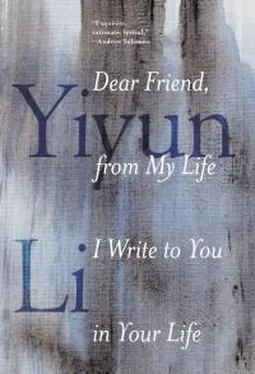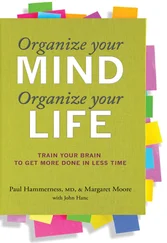“Oh, my dear Tolstoy, if you knew how difficult I find things and how sad I am!…May God spare you the feeling that life has passed by and at the same time has not begun yet,” wrote Turgenev in a letter. He was forty. Much of his major work was yet to be written. His decades-long quarrel with Tolstoy had not yet begun (the following year he wrote to a friend: “I have closed all my accounts with Tolstoy; as a person he no longer exists for me”). In another five years he would meet Flaubert—a friendship, more a kinship, that would last seventeen years, until Flaubert’s death.
It would have to be either arrogance or cowardice that made a man, intellectually active and physically fit, say that his life had ended. In War and Peace, Prince Andrei, after losing his first wife in childbirth, “thought over his whole life and reached the same old comforting and hopeless conclusion, that there was no need for him to start anything, that he had to live out his life without doing evil, without anxiety, and without wishing for anything.” He was thirty-one and had not met Natasha, the true love of his life.
It is not an unfamiliar story. What Turgenev bemoaned throughout his youth and middle age—that life had passed without having begun—was precisely what I had needed to hear when I first encountered him in the school library. All children require a system to stop being children. Fatalism beyond questioning became for me that system. There was the solace in imagining myself back to the period of Chen Duansheng or Turgenev or all those who had come before me. There was the advantage in believing I was old already because it released me from having to be young. There was the possibility of death, which allowed one to bypass digressions into a life that had to be lived in detail. Pritchett called Turgenev’s pessimism absolute. The absoluteness—whether it is pessimism or optimism or fatalism—is the most effective defense against what haunts one.
—
WHAT HAUNTS, BEFITTING the word’s origin, is home. Varvara Petrovna, Turgenev’s mother, reigned over the household with pride and rage. His father, like the father in First Love, married for pecuniary gain, was unfaithful in the marriage, and died young. Ivan Turgenev was the younger of two sons and his mother’s favorite. When his brother, Nikolai, married against their mother’s wish, she cut him off and let him struggle on a clerk’s salary to support his wife and three children. After years of effort on Ivan’s part to reconcile his brother and mother, she arranged for the grandchildren to be brought out to the street in St. Petersburg, looked at them, and left. When the three children died in the same year she remained indifferent to Nikolai’s loss.
Worse than enduring a tyrannical parent is to be the favored child. I wonder if, even for the most uncharitable parent, there is a child whose role is to be the chosen one, and to be beaten when he cannot return the love at a reciprocal level. Varvara Petrovna loved Ivan with a vengeful and violent passion. “I alone conceived you,” she wrote to him when he traveled abroad. “You are an egoist of egoist. I know your character better than you know yourself….I prophesy that you will not be loved by your wife.”
Turgenev lived most of his adult life abroad, an abandoner in his mother’s eyes as well as in the eyes of many of his countrymen. But how else can one live with what haunts one? I don’t even need to lay my eyes on you to know everything about you because you came from my body, my mother often said when I was growing up.
—
I SHIVER WHEN reading about a mother full of wrathful and possessive love. The thought that not all mothers are like that more and more is becoming a solace to me. There was Chen Duansheng’s mother, who raised her two daughters as poets at a time when education was considered damaging to feminine virtue. It was reassuring to see that John McGahern was buried next to his mother. When I met a friend’s parents, despite my theoretical understanding, it was extraordinary to see them interact with natural closeness. The fact that I had found it extraordinary made me cry afterward.
But one cannot have a different biography. One cannot find consolation in revision. One cannot relive age twelve to unread Turgenev. On the phone my father suggested, with a quantum physicist’s mystic illogic and a fatalist’s pure logic, that our difficulties be put into a new light. Who knows what we did in our past lives to others, he said; what we have is what we deserve.
How do we live with what we have, unhaunted? During the rioting of the Paris Commune, Turgenev wrote to Flaubert: “Oh, we have hard times to live through, those of us who are born spectators. ” But people are not born spectators—they choose to be. It is a decision made for the sake of living.
Turgenev never married. He spent much of his life in love with Pauline Viardot, a leading opera singer of the time (“that ugly Gypsy,” deplored his mother), arranging his time—from Paris to Baden to London and back to Paris—to be close to her. He became friends with her husband and collaborated with him on translation projects. He asked the couple to adopt his illegitimate daughter and renamed her Paulinette after Pauline. When Pauline’s stage career ended and she turned to composing operettas, Turgenev provided libretti.
Turgenev’s talent was as a witness. His letters to Pauline and Flaubert included accounts of historical and everyday events. Writing from Paris about the revolution of 1848, he observed: “I was also struck by the way the hot-chocolate and cigar vendors moved around the ranks of the crowd. Greedy, pleased, and unconcerned, they had the look of fishermen hauling in a heavily laden net.” On July 7, 1865, a scorching day in Washington, D.C., the hanging of Mary Surratt, Lewis Powell, David Herold, and George Atzerodt—conspirators in Abraham Lincoln’s assassination—drew crowds, and a reporter similarly noticed that “outside the prison, a different atmosphere prevailed. Cake and lemonade vendors were happily selling their wares.” With the security of distance, life can be looked at with curiosity—such is the comfort of a spectator.
—
FOR MANY YEARS I carried with me William Trevor’s Two Lives, a collection of two novellas, “Reading Turgenev” and “My House in Umbria,” the former my favorite work by Trevor. In their fictional reality the two protagonists have little in common: a Protestant Irishwoman from a small town who has chosen to spend more than thirty years in an asylum; and an Englishwoman with a handsome house in Umbria, a dubious past, and a shadowy present. A meeting between them would be unlikely.
That Turgenev would be read and memorized by an Irishwoman in an asylum is not far from his being singled out in a middle-school library in Beijing. One could easily give meaning to the serendipity of reencountering him in Trevor’s work, though to do so is foolish. Connections can always be created, an artificial system of symbols and patterns. But life, which defies interpretation, eludes cliché.
I stopped carrying Two Lives with me after the hospital stays. I can’t explain why. I was reading only dead authors at the time. Perhaps it was to resist medical advice and to isolate myself further. I distrusted all things solid in my life then. One afternoon, I sat on a bench with my younger son, waiting for his brother to come out of a class. We were not talking, as often we do not, but I was aware of his comfort in putting his hand in mine and keeping it there as though it was the most natural thing in the world. It must be, but it occurred to me that I didn’t understand it. I could approximate understanding, but it would be only that of an anthropologist.
—
Читать дальше












